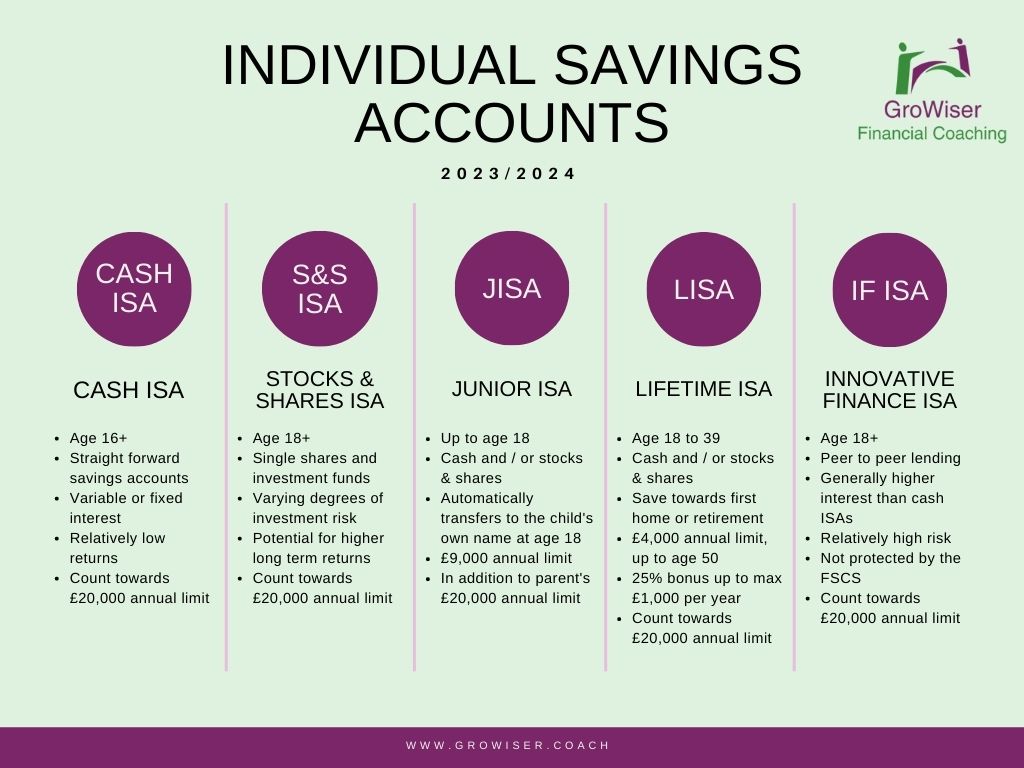As a lover of Scotch malt whisky, Ken Loach’s Angels’ Share film was great entertainment for me one October evening whilst on holiday in the Scottish Highlands. (Make sure any young kids are safely tucked up in bed before watching this film!) But what does this have to do with ISA tax benefits?
The devastating realisation that some whisky evaporates as it matures made me think of how our savings can suffer a similar fate.
When it comes to money, it’s not the vision of skyward angels enjoying a dram of Uisge Beatha that comes to mind. It’s an unwelcome chunk of our investment growth disappearing in tax.
Fortunately, there’s a way to create a better ‘seal’ around our hard-earned cash. Individual Savings Accounts (ISAs) can really help to minimise tax.
These were first introduced back in 1999 and at the time, you could choose between Mini or Maxi ISAs. Your money could be invested in Cash, Stocks and Shares or Life Insurance.
Over the years, successive governments have created new options and changed the yearly allowances . It’s now reached the point where it can be quite confusing if you’re starting out on your investment journey.
Nevertheless, due to the tax advantages, it’s worth putting in a bit of effort to understand your options. In this article, we take a high level overview of the main types of ISA and the general advantages.
Protect your ‘angels’ share’
First of all, let’s understand the tax situation. Broadly speaking, ISAs are free of income tax and capital gains tax. This might not be a big deal if you have a Cash ISA because they don’t produce capital gains. And Cash ISAs may not earn huge amounts of income, although interest rates are better than they have been in recent years. For many savers, interest will be covered by the personal savings allowance even without the use of ISAs.
But as your savings build up over the years, the tax shelter could become very significant. Stocks and shares ISAs can be a superb solution for long-term investing and there’s no capital gains tax to pay when you withdraw. This can mean the potential to save thousands of pounds in tax later down the line.
Think of it as squirreling your money away into empty whisky bottles, with a seal so tight, than nothing can escape in the form of tax.
Money held in ISAs does not need to be declared on tax returns either, so it can help simplify administration too.
It’s worth remembering that ISAs still form part of your estate for inheritance tax purposes, but at least you can enjoy tax free growth and withdrawals whilst you’re alive.
Use or lose your ISA tax benefits
All UK residents over 18 years of age have a maximum ISA allowance each tax year (6th April to the following 5th April). In 2023 / 2024, the overall allowance remains at £20,000 per person. So if you have the means, you can build up a big wad of tax free savings over the years.
If you don’t use all of your allowance one year, however, you can’t catch up next year. There is no carry forward of unused allowance, so it’s best to fill those tax-free bottles whilst your have the chance.
Don’t over-do it
The after-effects of too much scotch whisky are well documented.
Less painful (although still a pain to deal with) is the over-subscription of ISAs. Whilst there’s no limit on the amount of different ISAs you can own in general, you cannot pay into more than one of the same type of ISA in any tax year.
For example, you can’t open two different cash ISAs in the same tax year. You could, however, pay into one cash ISA and one stocks & shares ISA.
HMRC keep tabs on all of this because your National Insurance number is recorded on each ISA account. If you breach the rules, you’ll hear from the taxman!
Choose the best flavour of ISA for you
It’s a hotly debated topic among whisky lovers – peated, smoky, sweet, spicy, oily or dry. But really, it’s all about personal preference.
I’d argue that ISA options are much less tricky to navigate, but still, it can be a challenge at first. The guide below summarises the five main categories of ISA. Not all types are available to all people and it’s important to understand the purpose of each type.
For example, stocks and shares ISAs are good for longer term investment (think at least five years). Lifetime ISAs are attractive if you expect to use the money to help buy your first home or to enjoy life after 60.
Junior ISAs can be a great way for under 18s to start building up money for the future. They can be held in cash or stocks and shares and they have an annual allowance all to themselves.
Innovative Finance ISAs are a different type of investment. They’re a bit more specialised and offer potentially better returns than cash, whilst avoiding shares.


Summary of ISA tax benefits
Making good use of your ISA tax benefits helps you to Nurture Your Wealth and builds positive financial habits.
Remember that allowances and tax rules change from time to time, and a good summary of the latest rules can be found here. If you would like to chat about the options and how best to make decisions about investing, book a free Initial Chat.




 Production
Production
